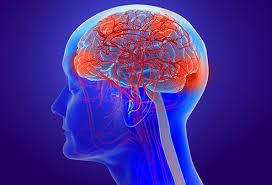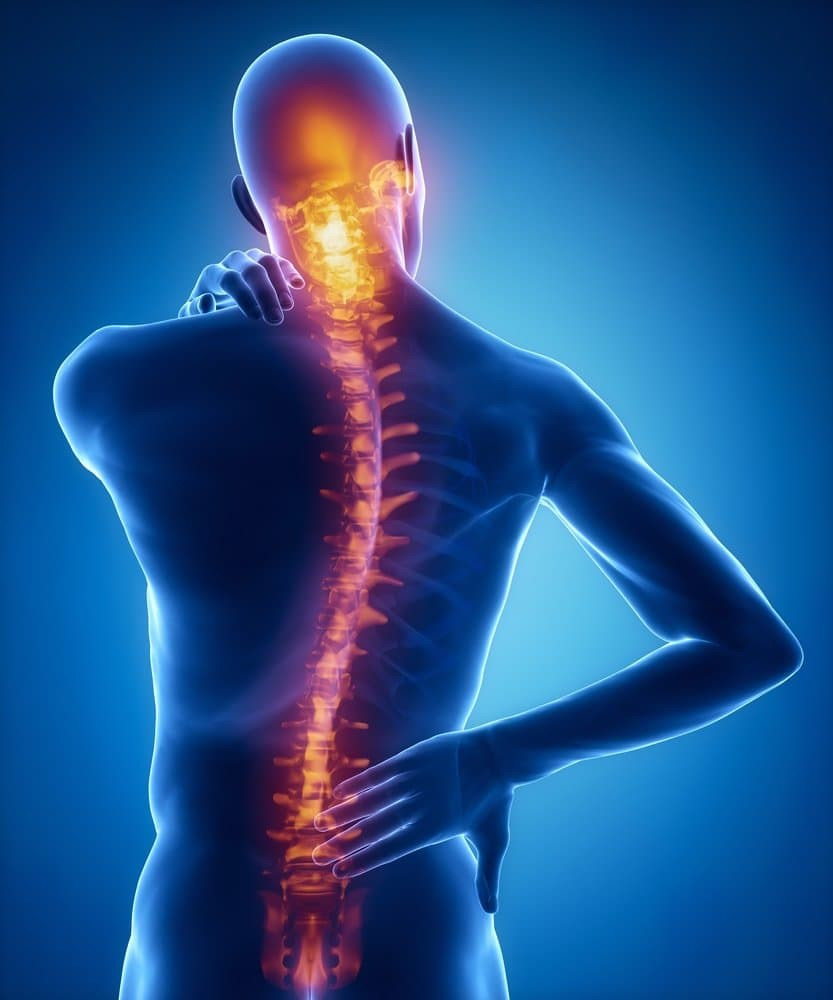Definisi
Ensefalopati adalah terminologi yang digunakan dalam menjelaskan suatu keadaan yang memengaruhi fungsi atau struktur otak, dan menyebabkan kerusakan atau malfungsi pada otak. Ensefalopati adalah sekelompok gangguan dengan berbagai penyebab. Terdapat banyak jenis ensefalopati. Ada yang permanen dan beberapa lainnya yang hanya muncul sementara. Ada yang muncul sejak lahir dan tidak bisa berubah, sementara ada yang diperoleh setelah lahir dan menjadi semakin memburuk. Gejalanya juga bervariasi, bisa bermanifestasi dengan gangguan ingatan atau perubahan kepribadian, sampai gejala yang berat seperti kejang, koma, atau bahkan kematian.
Penyebab
Berikut ini adalah beberapa jenis ensefalopati beserta penyebabnya:
Ensefalopati Traumatik Kronis
Ensefalopati jenis ini terjadi ketika terdapat banyak trauma atau cedera pada otak dan berlangsung dalam jangka lama. Cedera kepala ini menyebabkan kerusakan saraf di otak. Biasanya ditemukan pada petinju, pemain sepak bola, atau anggota militer yang terluka akibat ledakan.
Ensefalopati Glisin
Ensefalopati glisin adalah kondisi genetik atau yang diturunkan, di mana terdapat kadar glisin (asam amino) yang sangat tinggi di otak. Gejala ensefalopati glisin biasanya muncul pada bayi segera setelah lahir.
Ensefalopati Hashimoto
Ini adalah jenis ensefalopati langka yang berkaitan dengan kondisi autoimun tiroiditis Hashimoto. Pada tiroiditis Hashimoto, sistem kekebalan tubuh keliru menyerang kelenjar tiroid yang bertugas untuk memproduksi banyak hormon penting di tubuh. Namun, belum diketahui dengan pasti bagaimana tiroiditis hashimoto dapat menyebabkan ensefalopati.
Ensefalopati Hepatikum
Ensefalopati hepatikum adalah gangguan otak akibat penyakit hati. Ketika hati tidak berfungsi dengan baik, racun tubuh yang biasanya dikeluarkan oleh hati akan menumpuk di darah dan akhirnya dapat mencapai otak.
Ensefalopati Hipertensi
Ensefalopati hipertensi adalah komplikasi dari tekanan darah yang sangat tinggi dan tidak terkontrol. Hal ini terjadi jika sakit hipertensi tidak diobati dengan rutin. Tekanan darah yang tinggi dapat menyebabkan pembengkakan dan kerusakan pada otak.
Ensefalopati Hipoksik Iskemik
Kondisi ini adalah jenis kerusakan otak ketika otak tidak mendapatkan cukup oksigen. Otak kemudian akan mengalami kerusakan atau disfungsi otak permanen. Hal ini disebabkan oleh kurangnya oksigen ke otak seperti pada bayi yang terkena alkohol ketika dalam kandungan. Saat berada di dalam kandungan dan otak sedang berkembang, paparan alkohol pada bayi dapat menimbulkan gangguan pada otak.
Ensefalopati Toksik Metabolik
Ensefalopati toksik metabolik adalah akibat dari infeksi, toksin, atau kegagalan organ. Ketika elektrolit, hormon, atau bahan kimia lain dalam tubuh tidak seimbang, mereka dapat memengaruhi fungsi otak. Kondisi ini juga dapat disebabkan oleh adanya infeksi atau adanya bahan kimia beracun dalam tubuh. Ensefalopati biasanya sembuh ketika ketidakseimbangan atau infeksi dan toksin penyebab gangguan pada otak dihilangkan.
Ensefalopati Infeksius
Salah satu contohnya adalah ensefalopati spongiform menular, atau dikenal juga sebagai penyakit prion. Prion adalah protein yang terjadi secara alami di dalam tubuh. Namun, mereka dapat bermutasi dan menyebabkan penyakit yang secara bertahap merusak dan memperburuk otak (penyakit neurodegeneratif).
Ensefalopati Uremikum
Ensefalopati uremikum merupakan komplikasi dari gagal ginjal. Kegagalan ginjal menyebabkan penumpukan racun uremia di dalam darah yang jika sampai ke otak, akan mempengaruhi fungsi otak. Kondisi ini dapat menyebabkan kebingungan ringan hingga koma yang dalam.
Ensefalopati Wernicke
Juga dikenal sebagai penyakit Wernicke. Kondisi ini disebabkan oleh kekurangan vitamin B1. Alkoholisme jangka panjang, asupan nutrisi yang kurang, dan penyerapan makanan yang buruk dapat menyebabkan kekurangan vitamin B1. Jika ensefalopati Wernicke tidak diobati dengan cepat, dapat menyebabkan sindrom Wernicke-Korsakoff yang lebih berat.
Faktor Risiko
Berikut ini adalah hal-hal yang dapat meningkatkan risiko terjadinya ensefalopati, antara lain:
- Konsumsi alkohol berlebihan dan jangka panjang, dapat meningkatkan risiko menderita gangguan hepar, yang bila tidak dikontrol akan berisiko mengganggu jaringan otak dan menyebabkan ensefalopati hepatikum
- Anggota militer dan atlet olahraga yang mengalami benturan kepala berulang seperti petinju atau pemain sepak bola berisiko mengalami ensefalopati traumatik kronis
- Riwayat hipertensi yang tidak terkontrol berisiko menyebabkan komplikasi ensefalopati hipertensi
- Kekurangan vitamin B1 berisiko terkena ensefalopati Wernicke
- Memiliki anggota keluarga dengan riwayat ensefalopati
Gejala
Gejala akan bergantung pada penyebab dan tingkat keparahan ensefalopati. Gejala dapat memengaruhi perubahan mental dan kondisi neurologis atau fungsi saraf. Beberapa perubahan mental yang dapat terjadi antara lain:
- Gangguan memori
- Kesulitan berkonsentrasi dan fokus
- Gangguan keterampilan memecahkan masalah
- Perubahan kepribadian. Misalnya, pasien akan menjadi lebih terbuka daripada sebelum mengalami ensefalopati
- Menjadi orang yang lebih atau kurang tenang dibanding sebelum terkena penyakit
- Lesu dan mengantuk
Sementara, gangguan saraf yang mungkin dialami adalah:
- Kelemahan otot di satu area
- Kedutan yang tidak disengaja
- Tremor atau gemetar
- Kesulitan berbicara atau menelan
- Kejang
Diagnosis
Untuk mendiagnosis ensefalopati, dokter akan bertanya tentang riwayat kesehatan dan gejala yang Anda rasakan. Dokter juga akan melakukan pemeriksaan fisik untuk memeriksa kondisi mental dan neurologis. Jika dokter mencurigai Anda memiliki penyakit otak, dokter akan melakukan tes untuk menentukan penyebab dan tingkat keparahan penyakit. Tes tersebut antara lain:
- Tes darah untuk mendeteksi infeksi bakteri, virus, paparan racun, ketidakseimbangan hormon dan zat kimia tubuh, atau adanya prion
- Pungsi lumbal. Dokter Anda akan mengambil sampel cairan tulang belakang untuk mencari penyebab penyakit, apakah bakteri, virus, racun, atau prion
- CT atau MRI otak untuk mendeteksi kelainan atau kerusakan pada otak
- Tes Elektroensefalografi (EEG) untuk mengukur aktivitas listrik di otak
Tata Laksana
Terapi ensefalopati bervariasi tergantung pada penyebabnya. Terapi dapat berupa obat-obatan untuk mengatasi gejala dan pengobatan atau prosedur operasi untuk mengobati penyebab yang mendasari.
Dokter dapat merekomendasikan suplemen nutrisi untuk memperlambat kerusakan otak, atau diet khusus untuk mengobati penyebab dasar dari ensefalopati. Pada beberapa kasus, seperti ketika otak tidak menerima cukup oksigen, pasien dapat mengalami koma. Dalam kasus yang parah seperti ini, dokter akan memberikan perawatan intensif menggunakan alat-alat penunjang kehidupan.
Kondisi jangka panjang pasien tergantung pada penyebab ensefalopati dan tingkat keparahannya. Banyak jenis ensefalopati yang bersifat reversibel atau dapat pulih kembali jika penyebabnya diobati. Namun, semua jenis bisa berakibat fatal jika kondisinya terlanjur parah, apalagi terlambat terdiagnosis.
Dilansir dari Institut Gangguan Neurologis dan Stroke Amerika, ensefalopati spongiform menular biasanya menyebabkan kematian dalam waktu tiga bulan hingga beberapa tahun sejak timbulnya penyakit. Mengobati penyebab dasar dari ensefalopati dapat memperbaiki gejala atau bahkan dapat menyembuhkan ensefalopati.
Kerusakan otak dapat terjadi atau tidak bergantung pada jenis ensefalopati. Kerja sama yang baik antar petugas kesehatan dengan keluarga pasien dalam melakukan perawatan dan rencana terapi yang berkelanjutan dapat mendukung kehidupan pasien jika terjadi kerusakan otak.
Komplikasi
Komplikasi ensefalopati bervariasi dari tidak ada komplikasi sama sekali hingga gangguan mental berat yang dapat menyebabkan kematian. Komplikasi yang terjadi bergantung pada penyebab utamanya seperti contoh berikut:
- Ensefalopati hepatikum: pembengkakan otak dengan herniasi (pergeseran bagian otak), koma, hingga kematian
- Ensefalopati metabolik: iritabilitas, lesu, depresi, tremor, koma, atau kematian
- Ensefalopati hipoksik: bervariasi dari tidak ada komplikasi pada hipoksia jangka pendek hingga perubahan kepribadian, kerusakan otak parah, atau kematian pada hipoksia jangka panjang
- Ensefalopati uremikum: letargi (kesadaran mengantuk), halusinasi, stupor (kesadaran di bawah letargi), otot berkedut, kejang, hingga kematian
- Ensefalopati Hashimoto: kebingungan, intoleransi panas, demensia
- Ensefalopati Wernicke: kebingungan, kehilangan memori, penurunan kemampuan menggerakkan mata
- Ensefalopati spongiform Bovine atau "penyakit sapi gila": ataksia, demensia, dan mioklonus atau otot berkedut tanpa ritme atau pola apa pun
- Ensefalopati Shigella: sakit kepala, leher kaku, delirium, kejang, koma
- Ensefalopati infeksius pada anak: rewel, makan yang buruk, hipotonia atau sindrom bayi floppy, kejang, hingga kematian
Cara terbaik untuk mengetahui kemungkinan komplikasi adalah melalui diskusi dengan dokter yang mendiagnosis ensefalopati Anda.
Pencegahan
Beberapa jenis ensefalopati, termasuk yang bersifat herediter atau diturunkan, tidak dapat dicegah. Namun, jenis ensefalopati lainnya dapat dicegah dengan mengendalikan atau menghindari faktor risiko. Beberapa langkah berikut akan mengurangi risiko Anda mengalami ensefalopati, antara lain:
- Menghindari konsumsi alkohol dan obat-obatan narkotik
- Menghindari paparan zat beracun
- Makan makanan yang sehat dan bergizi
- Periksakan kesehatan Anda secara berkala
- Menjalankan pola hidup sehat
Kapan Harus ke Dokter?
Anda harus segera menemui dokter jika mengalami gejala-gejala ensefalopati seperti yang disebutkan di atas. Jika Anda sudah mendapat pengobatan, waspadalah terhadap tanda-tanda gawat berikut:
- Kebingungan yang berat
- Disorientasi berat
- Koma
Ketiga tanda di atas menunjukan kondisi yang semakin memburuk. Bila Anda atau orang di sekitar Anda mengalami gejala di atas, segera cari pertolongan medis agar kondisi pasien tidak semakin memburuk.
Mau tahu informasi seputar penyakit lainnya? Cek di sini, ya!
- dr Hanifa Rahma
Kivi, R. (2017). Encephalopathy. Retrieved 21 Desember 2021, from https://www.healthline.com/health/hepatic-encephalopathy.
MedicineNet (2020). Encephalopathy facts. Retrieved 23 Desember 2021, from https://www.medicinenet.com/encephalopathy/article.htm#what_are_the_complications_of_encephalopathy.
Malmo, K. (2019). What is encephalopathy?. Retrieved 24 Desember 2021, from https://www.webmd.com/brain/what-is-encephalopathy.
Wedro, B. (2020). Encephalopathy facts. Retrieved 24 Desember 2021, from https://www.emedicinehealth.com/encephalopathy/article_em.htm.
Burgess, L. (2018). What to know about encephalopathy. Retrieved 24 Desember 2021, from https://www.medicalnewstoday.com/articles/324008.












